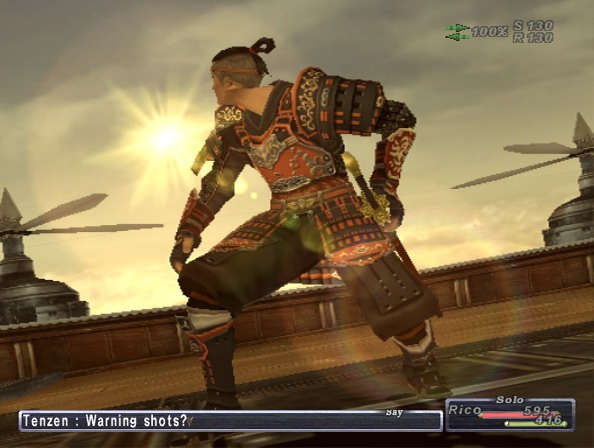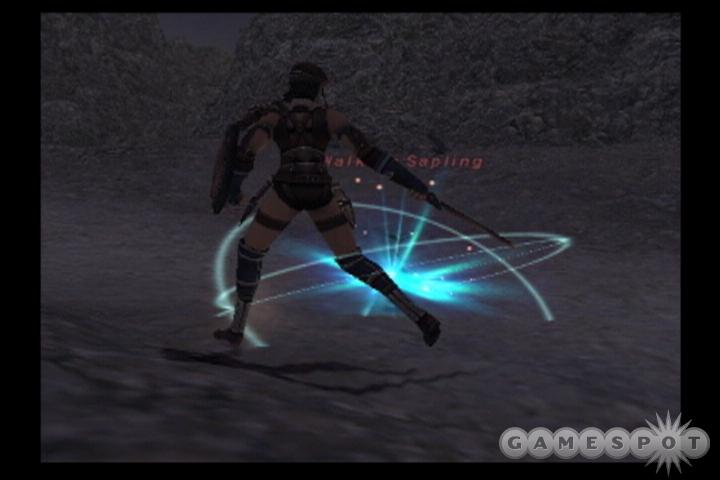

Indeed, when you pick the game's box from the shelf at your local retailer or add it to your basket online, know this: you're not so much holding a videogame as a passport.

It has races and racism, transport systems and ticket offices, vocations and money, smoking cities and gleaming landscapes, savage monsters and dark dangers, sparkling oceans and swimming skies and hope and death and fishermen and swords and mayors and farming and furry thongs and enough of the paraphernalia of life to persuade you to emigrate from atomic reality to pixel virtuality. Like Sweden, FFXI's society and scenery is built from hundreds of tiny building blocks. So, all one can really do is pull out a photograph of Final Fantasy XI for you to look at and, in doing so, simply give you the opportunity to see what those who love her see. The rest is down to the life that fills that framework. How much fun you will have there is only partially dictated by what the game's creators put in place. What really makes it a good place to live in are the people you encounter while there that interplay of human relationship that makes life what it is.Īnd so that is why MMORPGS are impossible games to review within the traditional critical framing question of: "How much fun will I have here?" But really, your quality of experience in Sweden is only partly influenced by these things. You could wax lyrical about how the laws are so very well thought out and the town planning and education and health and police and transport mechanics are perfectly implemented.

One could write for hours about what a wonderful place Sweden is to live: the sights and sites and sounds and pros and cons of its society's structures. MMORPGs are the same except moreso a hundred times over: their community is perpetually bred from within. We all have known that feeling of kinship through shared interactive addiction and affection, whatever the game in whatever the space in time. The experts helped the newbies until the newbies beat the experts and the circle of strife completed. We all jeered or revered each other while watching and learning new techniques together: a group of humans bound and strengthened by a communal gaming focus.

Street Fighter 2 amazed because there was community gathered around the arcade cabinet. The game only really begins to make sense 600 days in when your ninja character with thief sub-job reaches level 75 and completes his set of AF armour because it's only when you get that far in that you realise that the fun you've had hasn't really had much to do with the game at all. Rather, they are infinitely shifting, enormous structural playpens that exist primarily to breed and facilitate human relationships the life and love that traditionally surrounds games rather than inhabits them.
#Final fantasy xi review Offline#
This is partly because, even if you do spend one whole month of your life playing solely this game (during which time you can earn no money from other work to feed yourself or your family) everybody that is currently playing the game moans and bitches that you haven't played it enough yet and it's only 600 days in when your ninja character with thief sub-job reaches level 75 and completes his set of AF armour that the game really begins to make sense.īut it's mainly because, unlike offline games, online RPGs are not self-contained blocks of gameplay and narrative with a start, a middle and an end. MMORPGs are comfortably the most hated of games for a reviewer to critique.


 0 kommentar(er)
0 kommentar(er)
